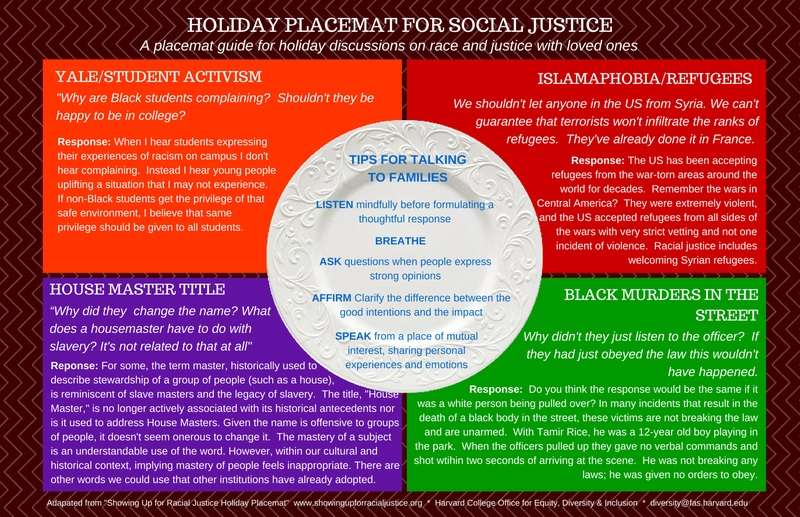A timeless anecdote about flawed problem-solving…it is timeless because it has accurately reflected the reality of human behavior for awhile, and continues to reflect it, to our discredit…
A few night ago a drunken man — there are lots of them everywhere nowadays — was crawling on his hands and knees under the bright light at Broadway and Thirty-fifth street. He told an inquiring policeman he had lost his watch at Twenty third street and was looking for it. The policeman asked why he didn’t go to Twenty-third street to look. The man replied, “The light is better here.”
We, like the inebriated fellow in the tale, know exactly where the watch went missing…
…[P]erhaps the most important question about racial preferences is one that’s not directly raised by the case: do they even work? Do they help underrepresented minorities to achieve their goals, and foster interracial interaction and understanding on elite campuses? Or do large preferences often “mismatch” students in campuses where they will struggle and fail?
Scholars began empirically studying the mismatch issue in the 1990s, but in the past five years the field has matured. There are now dozens of careful, peer-reviewed studies that find strong evidence of mismatch. None of the authors of these studies claim that mismatch is a universal or inevitable consequence of affirmative action. But in my view, only demagogues (of which there is, unfortunately, no shortage) or people who haven’t read the relevant literature can still claim that mismatch is not a genuine problem.
It does me no pleasure to report from personal experience, that six-foot straight white protestant guys still in possession of all twenty-one digits can be “mismatched.” It’s not at all hard to do, and it’s no picnic.
But someone on the Supreme Court read about the problem, out loud, and in so doing committed thought-crime.
“Senate Minority Leader Harry Reid on Thursday took to the Senate floor to attack Supreme Court Justice Antonin Scalia’s comments during an affirmative action case as ‘racist,’ ” CNN reports:
“These ideas that he pronounced yesterday are racist in application, if not intent,” Reid said. “I don’t know about his intent, but it is deeply disturbing to hear a Supreme Court justice endorse racist ideas from the bench on the nation’s highest court. His endorsement of racist theories has frightening ramifications, not the least of which is to undermine the academic achievements of Americans, African-Americans especially.”
Here’s what Scalia had to say yesterday, during oral arguments in Fisher v. University of Texas (we’re cleaning up some repeated words):
There are those who contend that it does not benefit African-Americans to get them into the University of Texas where they do not do well, as opposed to having them go to a less-advanced school, a less—a slower-track school where they do well. One of the briefs pointed out that most of the black scientists in this country don’t come from schools like the University of Texas. . . . They come from lesser schools where they do not feel that they’re being pushed ahead in classes that are too fast for them. . . . I’m just not impressed by the fact that the University of Texas may have fewer. Maybe it ought to have fewer. And maybe when you take more, the number of blacks, really competent blacks admitted to lesser schools, turns out to be less. And I don’t think it stands to reason that it’s a good thing for the University of Texas to admit as many blacks as possible.
In denouncing Scalia, Reid was following the lead of the liberal media. A New York Times editorial accused Scalia of positing an “offensive premise”—never mind whether or not it is true—“which has not gotten such a full airing at the Supreme Court since the 1950s.” The paper’s Adam Liptak reported that Scalia’s remarks “drew muted gasps in the courtroom.”
Living up to its reputation as the Times for infants, New York’s Daily News put Scalia on its front page, with a headline that screams “SUPREME DOPE.” The subheadline reads “Justice Scalia’s racist rant ripped.” Below it is a paraphrase of what Scalia said, which the News misleadingly puts in quotation marks.
The lead paragraph of the News’s “news” story by Adam Edelman: “What a supremely outrageous thing to say.” Edelman’s story includes this dubious appeal to authority: “Scalia’s comments…troubled civil rights activists across the country, including the Rev. Al Sharpton.”
Well now, there is a litmus test for you.
There is a term to describe this, and it fits so well that those who aren’t aware of it are derelict in their duties as learning, thinking humans not finding out about it; those who knew of it already, like me, have been derelict in our duties of using it at least some portion of all the occasions in which it fits, so that others may learn about it. Not only does it fit occasions, which aren’t even occasional, I would go much further to say it governs our entire existence as an information-based society.
Or not so much governs, but hangs around it like a bad stink.
“Overton Window”:
…“The window shifts to include different policy options not when ideas change among politicians, but when ideas change in the society that elects them.”
The Left — dominating the media, the academy, and pop culture — is unmatched at moving the Overton Window. Consider gay marriage, a subject once so far outside the mainstream that less than 20 years ago, Republicans and Democrats united to pass the Defense of Marriage Act to define marriage under federal law as the union of one man and one woman. Now? That view is such an anathema that it’s difficult to get — or retain — a job in entire sectors of the economy if you openly hold to the traditionalist position on marriage.
:
The leftward pressure on the Overton Window has been relentless, with conservatives reduced to applying herculean effort to simply maintain the cultural and political status quo. Yes, the Tea Party has nudged Republicans just a bit to the right, but it’s a sign of the success of the Left that a relatively unchanged GOP can be labeled as ever more extreme and “reactionary.” And few realities show this leftist success better than the fact that the Window now enables expressions of overt leftist hatred and bigotry — against Christians, against conservatives, against whites, and often against Jews.
Then along came Donald Trump. On key issues, he didn’t just move the Overton Window, he smashed it, scattered the shards, and rolled over them with a steamroller. On issues like immigration, national security, and even the manner of political debate itself, there’s no window left. Registration of Muslims? On the table. Bans on Muslims entering the country? On the table. Mass deportation? On the table. Walling off our southern border at Mexico’s expense? On the table. The current GOP front-runner is advocating policies that represent the mirror-image extremism to the Left’s race and identity-soaked politics.
But is Donald Trump rolling over the window with a steamroller, really? Or is the window rolling over him with one?
According to the famous satire site The Onion, we’re still waiting to find out which is which:
‘This Will Be The End Of Trump’s Campaign,’ Says Increasingly Nervous Man For Seventh Time This Year
Repeating identical comments he had made in June, July, August, September, and twice in November, increasingly nervous local man Aaron Howe responded to Donald Trump’s call to ban Muslims from entering the U.S. Monday by once again stating this would be the end of the Republican frontrunner’s campaign, sources confirmed. “Well, that’s it—you just can’t say those kinds of things and expect to be taken seriously any longer,” said an anxious Howe, his voice quavering slightly as he spoke aloud the very same words he had previously uttered in reaction to remarks about Mexicans, women, the disabled, former POW John McCain, and a number of other targeted parties. “That’s the final nail in the coffin right there. There’s no way he’s coming back from this one.” At press time, a visibly tense Howe was steadily amassing the angst and exasperation that would be unleashed in his seventh expletive-filled exclamation of the year when he catches sight of the newest set of GOP poll numbers.
Yeah…”GOP poll numbers,” I get it. Bashing Republicans as being racist. Well, not all “onions” can be “fresh,” all of the time.
Fact is, there is something going on here that is much, much bigger than the Republican party. It’s going into my imaginary, but ever-thickening file, of things you could never explain to a space alien renting space in your laundry room. Just imagine: Thoroughly unacquainted with our culture, but adequately intelligent and curious, he approaches you and asks you to explain — CANDIDATES want to be seen as problem-solvers. VOTERS want to be seen as problem-solvers. EVERYBODY is making a great show of being sick and tired of the problems…they seem sincere about it…but when it comes time to actually come up with solutions, so few people are coming up with any solutions, and so many people are declaring the solutions already suggested to be unacceptable. For every Donald Trump putting solutions “on the table,” there are perhaps millions of opinionated busybodies yanking solutions off the table. And not putting any other ones back on the table, in their place. And all these people are in line, demanding their high-fives for being problem-solvers when they aren’t solving anything.
Question: Could this be how you Earthlings “solve” problems? You wouldn’t be able to answer. I wouldn’t be able to answer. Actually, I’m genuinely starting to wonder myself.
When these problem-not-solvers yank the solutions off the table, offering their bumper-sticker-slogan-sized statements of rationale for doing so, they can’t even manage do it with any accuracy:
President Obama claims that restricting immigration in order to protect national security is “offensive and contrary to American values.” No-limits liberals have attacked common-sense proposals for heightened visa scrutiny, profiling or immigration slowdowns as “un-American.”
America’s Founding Fathers, I submit, would vehemently disagree.
Our founders, as I’ve reminded readers repeatedly over the years, asserted their concerns publicly and routinely about the effects of indiscriminate mass immigration. They made it clear that the purpose of allowing foreigners into our fledgling nation was not to recruit millions of new voters or to secure permanent ruling majorities for their political parties. It was to preserve, protect and enhance the republic they put their lives on the line to establish.
In a 1790 House debate on naturalization, James Madison opined: “It is no doubt very desirable that we should hold out as many inducements as possible for the worthy part of mankind to come and settle amongst us, and throw their fortunes into a common lot with ours. But why is this desirable?”
No, not because “diversity” is our greatest value. No, not because Big Business needed cheap labor. And no, Madison asserted, “Not merely to swell the catalogue of people. No, sir, it is to increase the wealth and strength of the community; and those who acquire the rights of citizenship, without adding to the strength or wealth of the community are not the people we are in want of.”
Madison argued plainly that America should welcome the immigrant who could assimilate, but exclude the immigrant who could not readily “incorporate himself into our society.”
George Washington, in a letter to John Adams, similarly emphasized that immigrants should be absorbed into American life so that “by an intermixture with our people, they, or their descendants, get assimilated to our customs, measures, laws: in a word soon become one people.”
In fact, the case could be made…at least, to anyone open to having a case made to them…maybe in lieu of discriminating against any one particular religious denomination, we should just slam the doors shut for now altogether. We are overdue, after all, the same way I find myself overdue for a salad diet when my jeans don’t fit.
…[A] lot of Americans have very legitimate concerns about assimilation, the massive amount of crime committed by illegal immigrants, and whether our government can properly vet immigrants. Additionally, given what’s happening, we should all be worried about American citizens losing out on jobs. Right now, the workforce participation rate in America is 62.6 percent, which is the lowest that number has been in 38 years. America DESPERATELY needs to focus on getting those Americans back to work instead of bringing new immigrants to take those jobs or alternately get on welfare themselves.
After all, it’s not as if the United States hasn’t already done our share when it comes to taking in immigrants. Currently, we have an all-time record population of 41.3 million foreign-born citizens. That’s an enormous increase,
“The 41.3 million immigrant population (legal and illegal) in 2013 was double the number in 1990, nearly triple the number in 1980, and quadruple that in 1970, when it stood at 9.6 million.”
Given how many Americans are out of work, how many immigrants are on some form of government assistance and how poor our vetting system is, doesn’t it make sense to halt the flood of immigration into our country for a few years?
That would give us time to get more Americans hired, fix our vetting process, secure the border and set up a merit-based immigration system that would assure we’re consistently getting the cream of the crop instead of bringing people here to take advantage of our welfare system.
Immigration has been a tremendous boon to America in times past and it can be again, but under our current system immigration can only make America weaker.
The issue isn’t quite so much that the situation has deteriorated to some meaningful level; the issue is that nobody with any clout, and interest in preventing harm from being done, is keeping an eye on it. We aren’t keeping an eye on it. Someone like Trump will say something, and the alarm bells will sound, screeds will be written, all sorts of pundits paid and unpaid will opine about the remarks, on Sunday talk shows and on social media, blisteringly. They’ll preen and preen some more…as they, almost systematically, and in the same breath as professing to be super-duper concerned about the stated problem, proceed to yank solutions off the table. It’s like someone forgot to tell them: That problem is not yet solved. It isn’t getting better. We don’t even know if we’re ever going to see it solved, that’s still a lingering question. The impression somehow didn’t get made on them, that we are not suffering from a glut of workable solutions to this, we’re toiling away under a scarcity.
And smack in the middle of an election campaign season — that, nowadays, lasts just short of two full years. Well that would mean we’re in “campaign season” all of the time, or close to it, which is a whole different problem. But it still raises a question: If we can’t come up with solutions now, as opposed to eliminating them, then when can we? And can we really claim to be concerned about solving problems if the noisiest and most opinionated among us are not, you know, coming up with solutions to them? When all they can manage to do is crawl out of little holes in the ground, like skunks, spray their “That guy isn’t as good a person as I am” stink-spray in as many different directions as they can manage, and scurry back into the hole again? That doesn’t make anything better. But we seem to have become accustomed to seeing something like that, nothing else, and somehow, coming away from the experience not demanding something more or different. The problems “addressed” this way continue to deteriorate and rot…and there’s little-to-no genuine surprise manifested anywhere about that, which I suppose stands to reason.














 I don’t know what liberals do about Christmas. There is so much required & expected paradigm shift, anywhere on the outside, that within their stately pleasure-dome is just business as usual. They think about spending, and neglect long-term consequences, all the time. They “cure” poverty, without a care in the world about whether it’ll stay cured, using other people’s money — all year long. No wonder they have a tough time getting into the spirit.
I don’t know what liberals do about Christmas. There is so much required & expected paradigm shift, anywhere on the outside, that within their stately pleasure-dome is just business as usual. They think about spending, and neglect long-term consequences, all the time. They “cure” poverty, without a care in the world about whether it’ll stay cured, using other people’s money — all year long. No wonder they have a tough time getting into the spirit. Amid these thoughts of
Amid these thoughts of  Liberals are much smarter about this. They never stop thinking about environments. That’s because when you engage this messaging to your fellow humans by way of controlling the environment, it’s purely a monologue and not a dialogue. This is exactly the sort of conversation liberals like to have, and all the time. Purely one-way. Even when they call it a “dialogue,” that’s what they have in mind. So it is natural that they think about this all of the time, whereas to the conservatives, it’s a change of pace to be thinking about it at all.
Liberals are much smarter about this. They never stop thinking about environments. That’s because when you engage this messaging to your fellow humans by way of controlling the environment, it’s purely a monologue and not a dialogue. This is exactly the sort of conversation liberals like to have, and all the time. Purely one-way. Even when they call it a “dialogue,” that’s what they have in mind. So it is natural that they think about this all of the time, whereas to the conservatives, it’s a change of pace to be thinking about it at all.